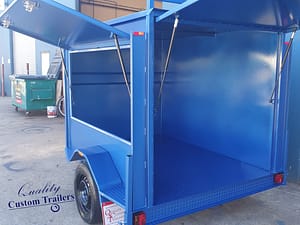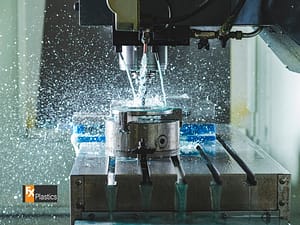CNC Laser Cutting is a precise and intricate field that requires a specific set of skills. These skills are crucial in ensuring efficiency, accuracy, and safety during the cutting process. To excel in CNC Laser Cutting, professionals need a diverse range of competencies. These include a deep understanding of the machinery, proficiency in using design software, knowledge of material properties, and an eye for detail. Skills in interpreting technical drawings and converting them into executable cutting paths are also essential. These competencies enable operators to effectively translate design concepts into tangible products.
The Importance of Specialized Training
Specialized training in CNC Laser Cutting is crucial for several reasons. First, it ensures that operators can handle complex machinery safely and efficiently. Secondly, it equips them with the necessary technical knowledge to make informed decisions about cutting processes, materials, and designs. Training also keeps operators updated on the latest advancements in laser technology, software, and industry best practices, ensuring high-quality outputs.
Fundamental Skills for Operating CNC Laser Cutting Machines
Technical Proficiency
Operating CNC Laser Cutting machines requires technical proficiency. Operators must understand the machine’s mechanics, including how to set up the laser cutter, adjust settings for different materials, and perform regular maintenance. Proficiency in software navigation is equally important, as it involves using CAD (Computer-Aided Design) and CAM (Computer-Aided Manufacturing) software to create and input cutting designs into the machine.
Material Knowledge
Understanding the properties of different materials is vital in CNC Laser Cutting. Different materials, such as metals, plastics, and woods, respond differently to laser cutting processes. Knowledge of material characteristics, such as thickness, melting point, and reflectivity, helps in adjusting the cutting parameters. This understanding ensures clean cuts, minimizes waste, and reduces the risk of material damage.
Advanced Skills and Techniques in Laser Cutting
Mastering Complex Cuts and Designs
Advanced skills in CNC Laser Cutting involve mastering complex cuts and intricate designs. This requires an understanding of advanced design principles and the ability to manipulate software to achieve precise and detailed cuts. Operators must also develop an eye for aesthetics to bring intricate designs to life while maintaining the structural integrity of the material.
Troubleshooting and Problem-Solving
Problem-solving is a critical skill in CNC Laser Cutting. Operators must quickly identify and address issues such as inaccurate cuts, machine malfunctions, or software errors. Effective troubleshooting involves understanding the root causes of problems and implementing solutions to prevent recurrence. This ability ensures minimal downtime and maintains consistent productivity.
Safety Training for CNC Laser Operators
Understanding Laser Safety Standards
Safety is paramount in CNC laser cutting operations. Operators must have a comprehensive understanding of laser safety standards, which encompass guidelines for safe machine operation, handling of materials, and personal protective equipment. These standards are often set by regulatory bodies and are designed to prevent accidents and injuries. Familiarity with safety protocols like proper machine setup, beam alignment, and emergency procedures is essential for every laser operator.
Implementing Safety Practices in the Workplace
Implementing safety practices in the workplace goes beyond theoretical knowledge. It involves practical application of safety measures, such as ensuring proper ventilation to avoid fume inhalation, using protective eye gear to shield against laser beams, and conducting regular safety audits. Operators should also be trained in first aid and emergency response in case of accidents.
Educational Pathways and Certification Programs
Formal Education vs. Vocational Training
| Criteria | Formal Education | Vocational Training |
|---|---|---|
| Type | Degree Programs | Certificate Programs, Apprenticeships |
| Description | Involves comprehensive studies at colleges or universities, often covering a broader scope beyond just CNC laser cutting. | Focused, hands-on training specific to CNC laser cutting, offered by trade schools or technical institutes. |
| Duration | Several years (Associate, Bachelor’s, Master’s) | Varies, from several weeks to a couple of years. |
| Focus | Broad-based education, theoretical knowledge, and general industry understanding. | Highly practical, job-specific skills tailored to immediate industry needs. |
| Career Path | Opens a wider range of career opportunities in design, engineering, management, etc. | Direct preparation for roles in CNC laser cutting operations, maintenance, or technical support. |
| Cost | Generally higher due to tuition fees and longer duration. | Typically lower; may include on-the-job training options. |
Certification Programs and Their Benefits
Certification programs for CNC laser cutting provide validation of an operator’s skills and knowledge. These programs can range from manufacturer-specific certifications to broader industry-recognized credentials. They are crucial for career advancement, providing a competitive edge in the job market and often leading to better job opportunities and higher pay.
Continuing Education and Skill Upgradation
Staying Updated with Industry Developments
The field of CNC laser cutting is continually evolving with advancements in technology and materials. Therefore, it’s important for operators to stay updated with industry developments. This could involve learning about new laser types, software updates, or innovative cutting techniques. Staying informed ensures that operators maintain a high level of proficiency and can work efficiently with the latest technologies.
Opportunities for Ongoing Learning
Continuous learning is key in the field of CNC laser cutting. There are numerous resources available for ongoing learning, including online courses, workshops, webinars, and industry conferences. These platforms not only offer opportunities to learn new skills but also to network with peers and experts in the field. Many companies also offer on-the-job training programs to help their employees stay abreast of new developments.
Practical Experience through Apprenticeships and Workshops
Value of Hands-on Experience
In the realm of CNC laser cutting, hands-on experience is invaluable. Apprenticeships and workshops offer practical experience that is crucial for mastering the intricacies of laser cutting technology. These opportunities allow individuals to apply theoretical knowledge to real-world scenarios, enhancing their understanding of the machinery, materials, and techniques used in the industry. Gaining hands-on experience not only develops technical skills but also fosters problem-solving abilities and boosts confidence in handling complex tasks.
Finding Apprenticeship Opportunities
Securing apprenticeship opportunities in CNC laser cutting can be a vital step in career development. To find these opportunities, it’s beneficial to connect with professional organizations, trade schools, and industry events. Networking with professionals in the field and participating in relevant forums or social media groups can also lead to potential openings. Additionally, approaching companies directly to inquire about apprenticeship programs can be an effective strategy.
Building a Career in CNC Laser Cutting
Career Pathways and Opportunities
A career in CNC laser cutting offers various pathways ranging from machine operation and technical maintenance to design and project management. Opportunities exist in diverse industries, including manufacturing, automotive, aerospace, and custom fabrication. With the expanding use of CNC laser cutting technology, new roles and specializations continue to emerge, providing a dynamic career landscape for professionals in the field.
Skills and Experience for Career Advancement
Employers in CNC laser cutting look for a combination of technical skills, experience, and soft skills. Proficiency in operating CNC machinery, understanding of CAD/CAM software, and knowledge of different materials are fundamental. Experience with complex projects, troubleshooting skills, and the ability to work under tight deadlines are also highly valued. Soft skills like communication, teamwork, and creativity can help professionals stand out and advance in their careers.
Conclusion
Continuous learning is crucial in a technology-driven industry like CNC laser cutting. Professionals must commit to lifelong learning to keep pace with rapid technological advancements. Engaging in ongoing education, whether through formal courses, workshops, or self-directed learning, is key to maintaining relevance and expertise in the field. This commitment to continuous skill development not only ensures professional growth but also contributes to the advancement of the industry as a whole.







